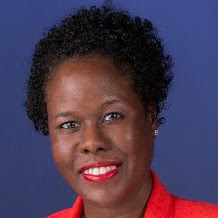 The State University of New York announced the second class of 72 full-time faculty hires as a part of the recruitment and retention program to increase diversity on SUNY campuses. Now in its second year, Promoting Recruitment, Opportunity, Diversity, Inclusion and Growth (PRODiG ) has led to the hiring of 149 faculty on 31 campuses of the State University of New York System. The campus’ PRODiG plan to increase faculty diversity has resulted in 41 percent of all new faculty hires being from underrepresented groups.
The State University of New York announced the second class of 72 full-time faculty hires as a part of the recruitment and retention program to increase diversity on SUNY campuses. Now in its second year, Promoting Recruitment, Opportunity, Diversity, Inclusion and Growth (PRODiG ) has led to the hiring of 149 faculty on 31 campuses of the State University of New York System. The campus’ PRODiG plan to increase faculty diversity has resulted in 41 percent of all new faculty hires being from underrepresented groups.
Through PRODiG, SUNY is creating a more robust pipeline for graduate students interested in academic careers. SUNY provides financial support to campuses to support new faculty hires, and PRODiG faculty members receive support from SUNY and their campuses through webinars, mentoring, and grants to support their success and continued advancement. Today, only 4 percent of the faculty members in the state system are Black.
“While SUNY’s students more broadly represent the diversity of New York State and a cross-section of our nation and the world, we acknowledge the need and importance to have a more diverse faculty,” said SUNY Chancellor Jim Malatras. “By creating a pipeline and backing it with dedicated support, our PRODiG program has already increased the number of new faculty hires from underrepresented minorities by nearly 40 percent, and we will continue to expand this program to ensure diversity, equity, and inclusion remain not just the mission of SUNY, but that it is also followed up with real, sustainable change to close racial equity gaps, and eliminate cultural and racial discrimination across SUNY.”
Don Christian, president of SUNY-New Paltz added that “one of the longest standing and most unfulfilled challenges facing higher education is to diversify the workforce of the academy and to create learning and working environments that are equitable and inclusive so that every member of our community can achieve their full promise. PRODiG has created a framework and offered funding for intentional and sustained change and helped us take bigger and bolder steps in our journey to be a more inclusive campus.”










RastafarI love.
This is a very good initiative that will hopefully provide BIPOCs graduate students the motivation mto complete their degrees. I feel that my advisors in Graduate School were less inclined to support my work because they felt that I would not get a good job in academia. So,I am very happy that the SUNY system in my home state of New York is providing this opportunity so that folks like me can get good academic appointments at Universities in our state. I just wish that they offered Post Docs and grants for Students who are finishing our work! Blessed love.#1804 # Ayiti
The only black faculty who will motivate black students are black faculty who can compete successfully with and against their white peers. Otherwise, they become a source of discouragement; even embarrassment.
I’m not sure I would have been helped by any black prof who embraced the nonsense of Rasta culture.